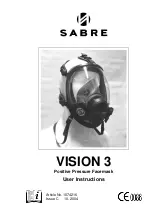
Applications, Measurement Channels, and Operating Modes
R&S
®
FSW
115
User Manual 1173.9411.02 ─ 43
6
Applications, Measurement Channels, and
Operating Modes
The R&S
FSW allows you to perform all sorts of different analysis tasks on different
types of signals, e.g. W-CDMA, I/Q analysis or basic spectrum analysis. Depending on
the task or type of signal, a different set of measurement functions and parameters are
required. Therefore, the R&S
FSW provides various applications - some of which are
included in the base unit, others are optional. The default application when you start
the R&S
FSW is "Spectrum", for basic spectrum analysis measurements on any type
of signal.
For each application, a separate measurement channel is created, which determines
the measurement settings for that application. The same application can be activated
with different measurement settings by creating several channels for the same applica-
tion. Each channel is displayed in a separate tab on the screen.
The maximum number of measurement channels may be limited by the available
memory on the instrument.
By default, each application operates independently of the others, measuring and ana-
lyzing its own distinct data. However, the R&S
FSW also provides other operating
modes, in which the individual applications are correlated and analyze the same set of
data.
Signal and Spectrum Analyzer Mode
With the
conventional R&S
FSW Signal and Spectrum Analyzer
mode, you can
perform several different measurements almost simultaneously. However, the individ-
ual measurements are independent of each other -
each application captures and
evaluates its own set of data
, regardless of what the other applications do.
In some cases it may be useful to
analyze the exact same input data using different
applications
. For example, imagine capturing data from a base station and analyzing
the RF spectrum in the Analog Demodulation application. If a spur or an unexpected
peak occurs, you may want to analyze the same data in the I/Q Analyzer to see the
real and imaginary components of the signal and thus detect the reason for the irregu-
lar signal. Normally when you switch to a different application, evaluation is performed
on the data that was captured by that application, and not the previous one. In our
example that would mean the irregular signal would be lost. Therefore, a second oper-
ating mode is available in the R&S
FSW: Multi-Standard Radio Analyzer (MSRA)
mode.
Multi-Standard Radio Analyzer mode
In
Multi-Standard Radio Analyzer (MSRA) mode
, data acquisition is performed once
as an I/Q measurement in a master application, and the captured data is then evalu-
ated by any number of slave applications for different radio standards. Data acquisition
and global configuration settings are controlled globally, while the evaluation and dis-
play settings can be configured individually for each slave application. Using the Multi-
















































